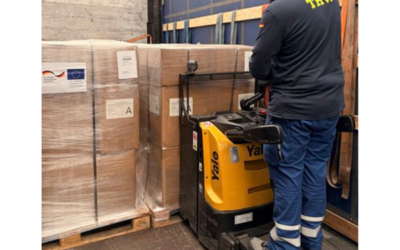The DKKV is…
German Committee for Disaster Reduction e.V. (ger.: Deutsches Komitee Katastrophenvorsorge e.V.)
Newsblog
Cyclone Gezani hits Madagascar hard – THW provides relief supplies
On 10 February 2026, tropical cyclone Gezani hit the east coast of Madagascar with wind speeds of up to 250 kilometres per hour, causing severe devastation. According to official reports, at least 31 people were killed and many more were injured. Several people are...
UNDRR launches free online course “Covering Disasters from a Different Lens”
The United Nations Office for Disaster Risk Reduction (UNDRR) has published a free online course for journalists and media professionals worldwide entitled ‘Covering Disasters from a Different Lens’. The aim is to make reporting on disasters fact-based, responsible...
German Weather Service releases seasonal climate outlook for March to July 2026
The German Weather Service (DWD) has published its latest seasonal climate outlook for the period March to July 2026 (issued 16 February 2026). Seasonal forecasts do not predict day-to-day weather conditions; instead, they indicate climate tendencies over several...
Global Risks Report 2026: An Age of Competition and Growing Uncertainty
The World Economic Forum (WEF) published the Global Risks Report 2026 in January 2026. Now in its 21st edition, the report analyses key global risks across different time horizons and is aimed at political and economic decision-makers worldwide. At its core is the...
Follow us




What is disaster risk reduction?
Storms, natural hazards and extreme events can quickly become a danger to people and the environment. But climate change, extreme urbanization, power outages and fires also offer potential hazards.
A disaster occurs when the functioning of a community or society is impaired or interrupted and, as a result, high human, material, economic and ecological losses occur that cannot be managed alone.
Precautionary measures can help to reduce the consequences and impact of the disaster. Depending on the hazard and personal circumstances, the precautionary measures to be taken may vary.
Find out more about potential hazards and individual precautionary measures on our topic pages.






